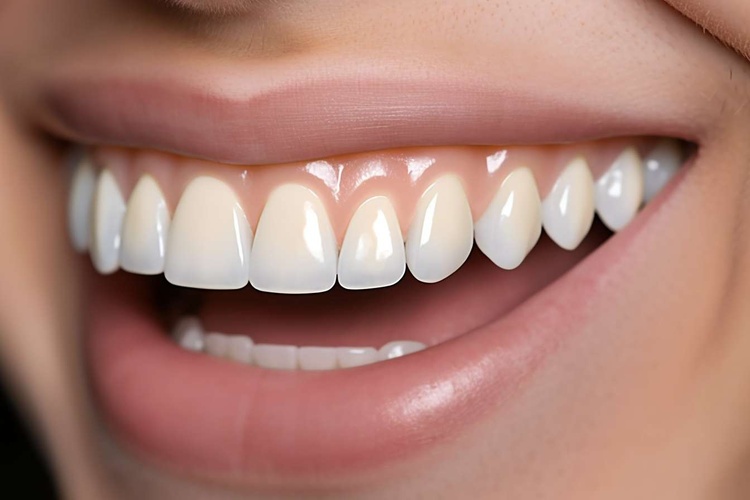How to Get Rid of Bad Breath Right Now
Bad breath affects millions of people worldwide and can significantly impact confidence and social interactions. While many reach for quick fixes like mints or mouthwash, lasting freshness requires addressing the root causes. Understanding that halitosis often stems from multiple factors including digestive issues, oral hygiene habits, and underlying health conditions is crucial for effective treatment.

Bad breath, medically known as halitosis, is more than just an embarrassing social issue. It can indicate underlying health problems and significantly affect your quality of life. Many people struggle with persistent bad breath despite regular brushing and using commercial mouthwashes. The key to eliminating bad breath lies in understanding its various causes and implementing comprehensive solutions that address both immediate symptoms and long-term oral health.
Bad Breath Starts in Your Gut — Fix It From Within
The digestive system plays a crucial role in breath freshness that many people overlook. When food isn’t properly digested, it can ferment in the stomach and intestines, producing sulfur compounds that travel through the bloodstream to the lungs and emerge as bad breath. Poor gut health, including bacterial imbalances and digestive disorders, can create persistent halitosis that surface treatments cannot resolve.
Improving digestive health involves eating probiotic-rich foods like yogurt, kefir, and fermented vegetables to restore healthy gut bacteria. Additionally, staying hydrated helps maintain proper digestion and prevents the buildup of odor-causing compounds. Avoiding foods that commonly cause digestive issues, such as processed foods high in sugar and artificial additives, can also significantly improve breath quality from within.
How Stomach Issues, Poor Hygiene, and Dry Mouth Affect Breath
Multiple factors contribute to bad breath, requiring a comprehensive approach for effective treatment. Stomach acid reflux can bring digestive odors into the mouth, while inadequate oral hygiene allows bacteria to accumulate on teeth, gums, and tongue. Dry mouth, often caused by medications, medical conditions, or mouth breathing, reduces saliva production that naturally cleanses the mouth and neutralizes odor-causing bacteria.
Addressing these issues simultaneously involves establishing a thorough oral hygiene routine that includes brushing twice daily, flossing, and using an antibacterial tongue scraper. For dry mouth, increasing water intake, using sugar-free gum to stimulate saliva production, and avoiding alcohol-based mouthwashes can help maintain moisture levels. Managing stomach issues may require dietary modifications and consulting healthcare professionals for persistent digestive problems.
Natural Remedies Combined With Science Create Real Freshness
Combining traditional natural remedies with scientific understanding creates effective bad breath solutions. Green tea contains polyphenols that inhibit bacterial growth, while chewing fresh herbs like parsley, mint, or cilantro provides immediate freshness and antibacterial benefits. Oil pulling with coconut oil has been scientifically shown to reduce harmful bacteria in the mouth and improve overall oral health.
Baking soda serves as a natural pH balancer that neutralizes acids produced by bacteria, while zinc supplements can help reduce sulfur compound production. Apple cider vinegar, when diluted and used as a mouth rinse, creates an environment hostile to odor-causing bacteria. These natural approaches work best when combined with proper oral hygiene and addressing underlying health issues.
Why Mouthwash Isn’t Enough — You Need a Full Reset
Commercial mouthwashes often provide only temporary relief by masking odors rather than eliminating their sources. Many contain alcohol that can dry out the mouth, potentially worsening bad breath over time. A complete approach requires resetting your entire oral care routine and lifestyle habits that contribute to halitosis.
This full reset includes replacing your toothbrush every three months, cleaning your tongue daily, staying hydrated throughout the day, and avoiding tobacco products. Regular dental checkups help identify and treat underlying issues like gum disease or tooth decay that contribute to bad breath. Additionally, managing stress levels and getting adequate sleep support overall health, including oral health and fresh breath.
| Treatment Type | Provider/Method | Cost Estimation (PKR) |
|---|---|---|
| Professional Dental Cleaning | Local Dental Clinics | 3,000 - 8,000 |
| Probiotic Supplements | Pharmacies/Health Stores | 1,500 - 4,000 per month |
| Natural Oil Pulling Kit | Health Food Stores | 800 - 2,000 |
| Zinc Supplements | Medical Stores | 500 - 1,500 per month |
| Comprehensive Oral Care Kit | Dental Supply Stores | 2,000 - 5,000 |
Prices, rates, or cost estimates mentioned in this article are based on the latest available information but may change over time. Independent research is advised before making financial decisions.
Clinically-Backed Formulas Build Confidence in Every Breath
Scientific research has identified specific compounds and treatment protocols that effectively combat bad breath. Studies show that certain bacterial strains, particularly those producing volatile sulfur compounds, are primary culprits in halitosis. Clinically proven ingredients like chlorhexidine, cetylpyridinium chloride, and specific probiotic strains have demonstrated significant effectiveness in reducing bad breath.
Implementing evidence-based treatments ensures lasting results and builds confidence in social and professional interactions. Regular monitoring of progress, maintaining consistent oral hygiene practices, and addressing any recurring issues promptly help maintain fresh breath long-term. Understanding the science behind bad breath empowers individuals to make informed decisions about their oral health and choose treatments that provide genuine, lasting results.
Eliminating bad breath requires patience, consistency, and a comprehensive approach that addresses multiple contributing factors. By understanding the connection between digestive health, oral hygiene, and overall wellness, you can achieve lasting freshness and renewed confidence in your daily interactions.
Disclaimer: This article is for informational purposes only and should not be considered medical advice. Please consult a qualified healthcare professional for personalized guidance and treatment.




